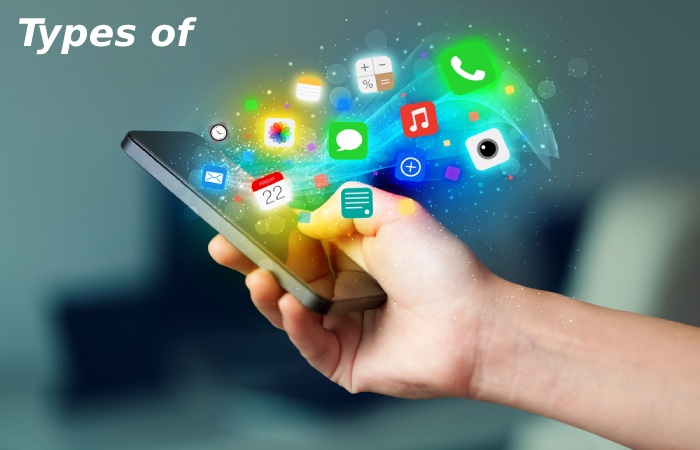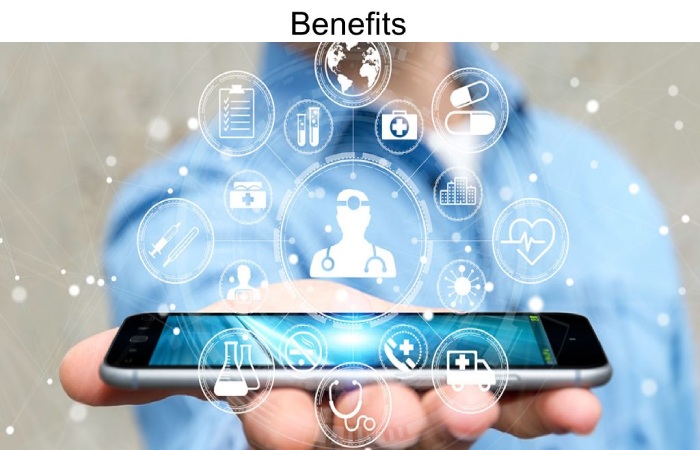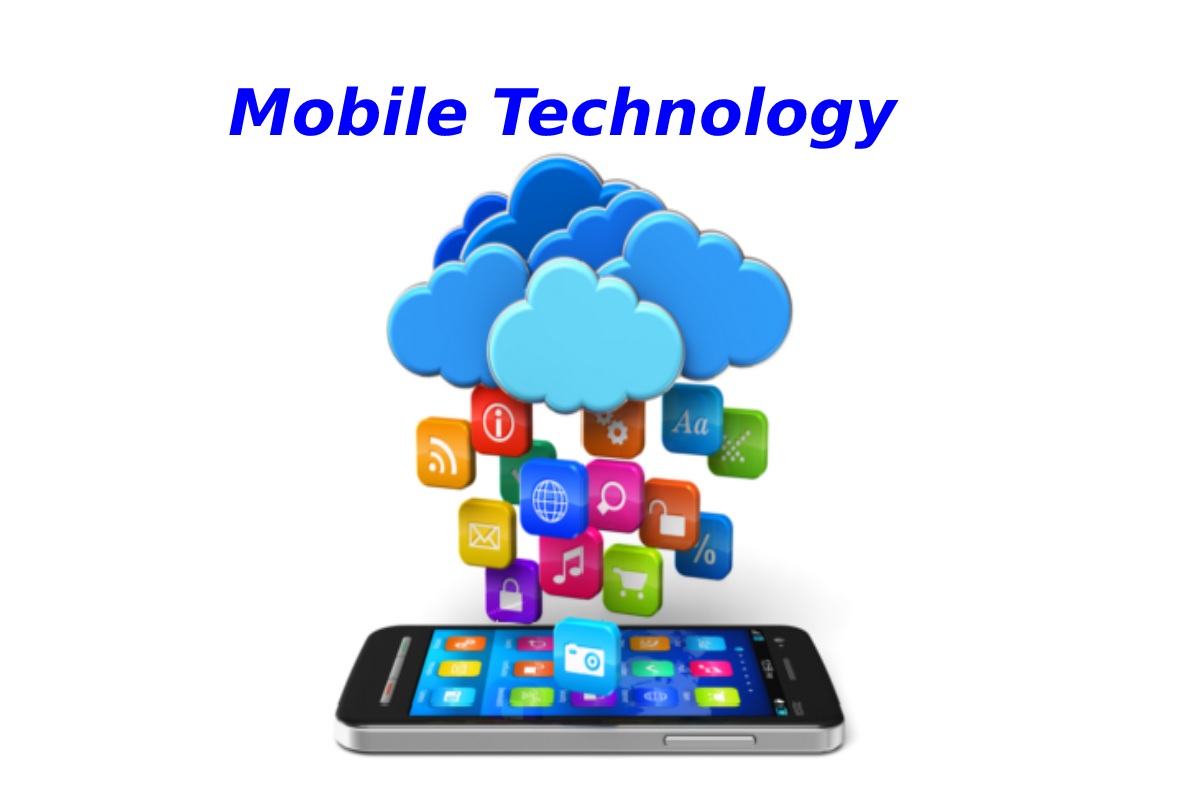What is Mobile Technology?
Mobile technology drives where the operator goes. It consists of two-way mobile communication planes, computing devices, and the network technology that connects them.
Today, mobile technology characterize by Internet-connected devices such as smartphones, tablets, and watches. These are the latest in a progression, including two-way pagers, laptops, cell phones (folding phones), GPS navigation devices, and more.
And also, the communication networks that link these strategies are generally called wireless technologies. They allow mobile plans to share voice, data, and applications (mobile applications).
Mobile technology is ubiquitous and growing. The number of smartphone users has exceeded three billion, and the global mobile workforce expects to reach 1.87 billion by 2022.
What are the Types of Mobile Technology?

Cellular Networks
Radio networks using distributed mobile phone towers that allow mobile devices (cell phones) to change frequency and communicate seamlessly over large geographic areas mechanically.
The same essential switching capacity allows cellular networks to accommodate many users on insufficient radio frequencies.
4G Network
Current regular cellular service for most wireless communications. In addition, it uses packet-switching technology, which organizes the data into parts or packets for transmission and collects the information from the destination.
Furthermore, 4G—”G” for a generation—would be 10 times faster than 3G, and 5G, even faster, is yet to come. 5G uses added frequency bands to unlock bandwidth and is roughly 20 times faster than 4G.
Wireless
The radio waves that connect devices to the Internet have ended up in localized routers called access points.
Small for wireless fidelity, WiFi networks are like cellular barbicans for Internet access, but they don’t automatically authorize service without establishing a Wi-Fi connection.
Most mobile devices can automatically switch between Wi-Fi and cellular networks based on obtainability and user preferences.
Bluetooth
A specification for the telecommunications industry to connect devices over short distances using short-wavelength radio waves.
And also, Bluetooth allows users to connect quickly or pair devices such as headsets, speakers, phones, and other devices.
Benefits of Mobile Technology

The benefits of using mobile technology for business purposes can be evident in:
- Greater efficiency and productivity of staff;
- The quality and flexibility of the service offered to its clients;
- And also, the ability to accept wireless payments;
- The ability to communicate inside and outside the workplace has increased;
- Better access to modern applications and services;
- And also, it improves network capabilities.
Mobile devices can connect you directly to the office network while you work off-site. For example, you can:
- Create a new customer account;
- And also, access existing customer files;
- Verify the values and accessibility of the actions;
- And also order online.
Rapid advancements in cloud technologies drive mobile devices in business, support more flexible work practices, and access services over the Internet.
Disadvantages of Mobile Technology
The main disadvantages of using mobile technology in business include:
Costs
New technologies and devices are often expensive to purchase and require ongoing maintenance and service.
Distractions at Work
And also, the range of technologies and devices is increasing, which can potentially disrupt productivity and the business plan.
Additional Training Needs
Additionally, your staff may need instruction and training on how to use new technologies.
Increased IT Security Needs
Additionally, portable devices are vulnerable to security risks, especially if they contain sensitive or critical business data.
If you are using business mobile plans, you must take precautions to ensure that the machines and data they can access remain secure.
Key Capabilities of Effective Mobile Technology
1. Scalability
Creating point solutions that go unmeasured in a business can be costly in development, management, and maintenance.
In addition, applications must design holistically, taking into account industries, processes, and technical environments.
2. Integration
IDC notes (PDF, 611 KB) that “… the applications offered on mobile phones and tablets present a separation between the mobile application and the background data and business logic services.”
Additionally, connecting logic and data services to the application is critical, whether the reason and data are on-premises, cloud, or hybrid forms.
3. Reuse
Over 105 billion mobile applications download in 2018. It can be modified or combined for business applications.
Additionally, utilizing existing applications accelerates time to value and improves profitability by leveraging industry and industry information embedded in the application.
4. Cloud-Based Development
The cloud provides an efficient platform for developing, testing, and managing applications. Developers can also use application programming interfaces (APIs) to connect applications to master data and focus on front-end meanings.
They can add verification to strengthen security and access to artificial intelligence (AI) and cognitive services.
5. Mobility Management
As mobile technology deploy, organizations seek enterprise mobility management (EMM) answers to configure plans and applications. It also tracks device inventory and usage, monitors and protects data, and supports and resolves issues.
6. BYOD
Bring an IT policy on your device (BYOD) that allows employees to use personal devices to access data and systems.
Moreover, effectively adopted, BYOD can improve productivity, increase employee satisfaction, and save money. At the same time, it poses security and device management questions that need to address.
7. Security
The battle for mobile security is overwhelming in terms of volume and complexity. Artificial intelligence (AI) is emerging as an essential weapon for detecting security anomalies in large amounts of data.
Plus, you can help discover and correct malware incidents or recommend actions to meet regulatory requirements from a central dashboard.
8. Edge Computing
One of the main benefits of 5G is that it can bring applications closer to your edge servers or data sources.
In addition, the proximity of data to its source can provide network benefits, such as improved response times and better bandwidth availability.
And also, from a business perspective, advanced computing offers the ability to perform more comprehensive data analysis and gain deeper insights faster.
Conclusion
Mobile technology is defined as any Internet-enabled device accessible wherever the user is. Current devices in this category include smartphones, tablets, iPods, and laptops, although this list is sure to grow in years to come.
Also Read: Insurtech – Definition, Understanding, Criticism, Works, and More


